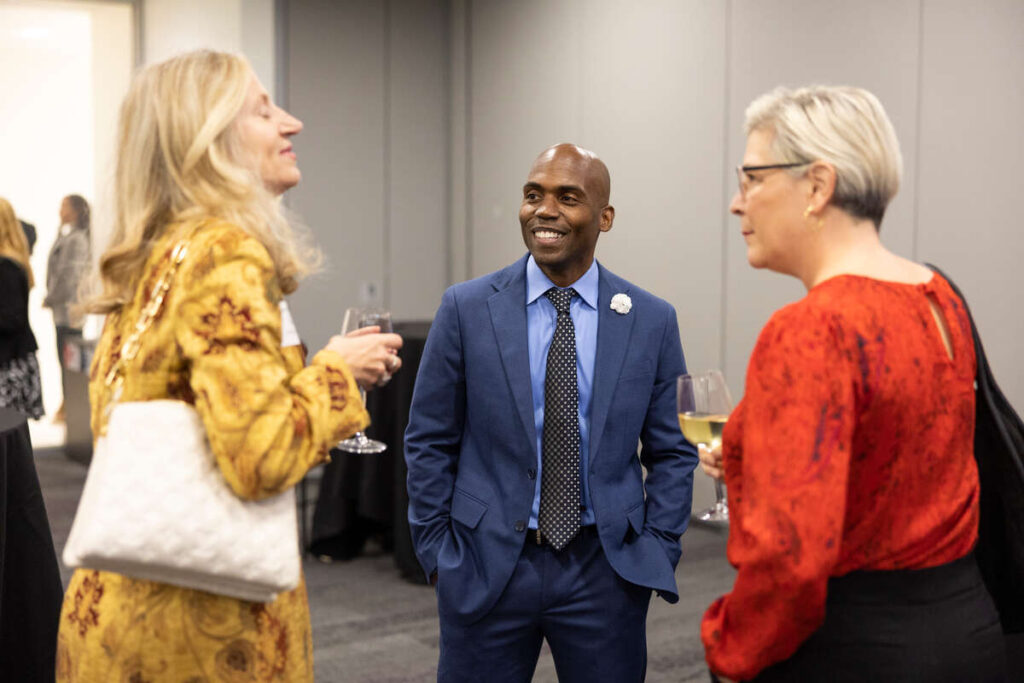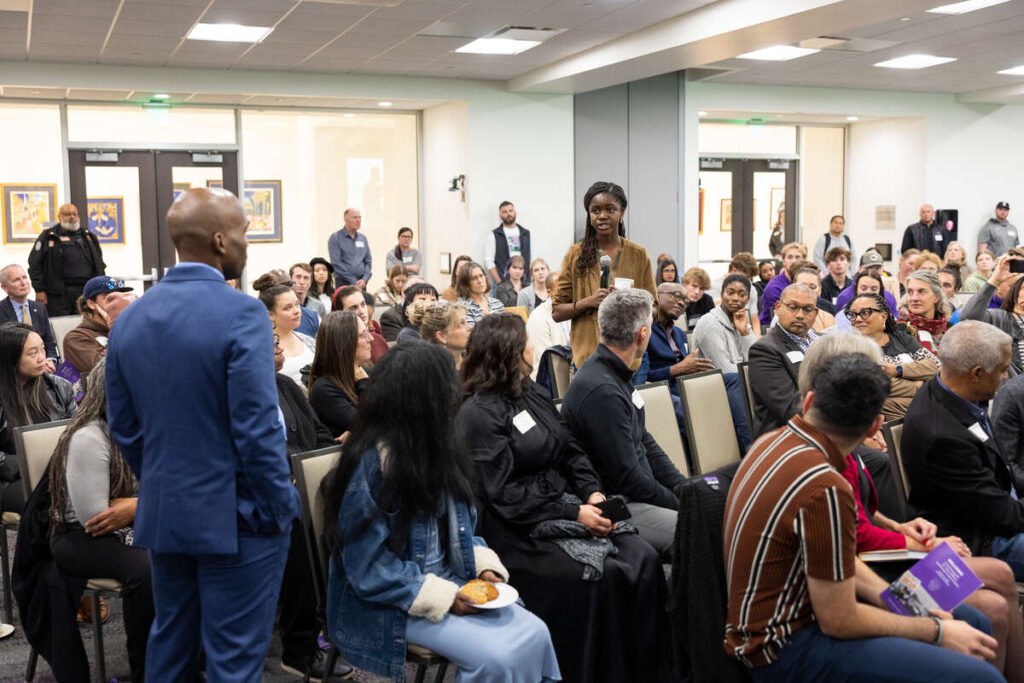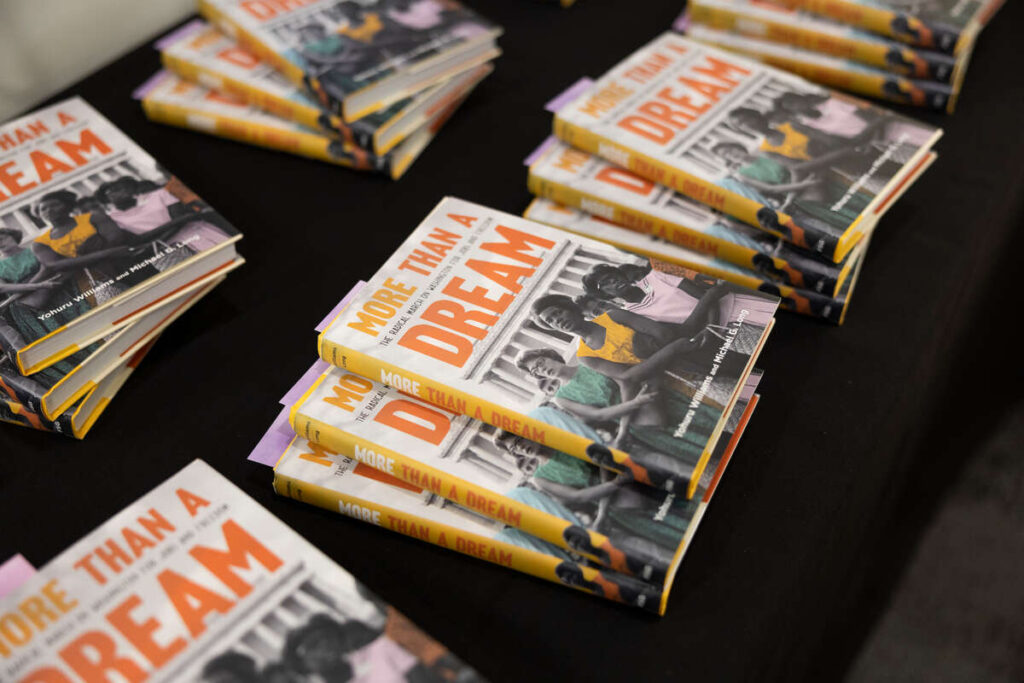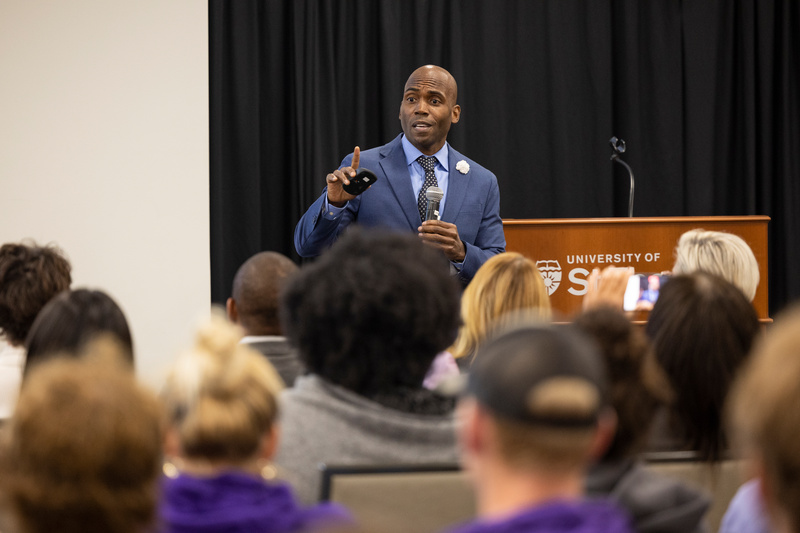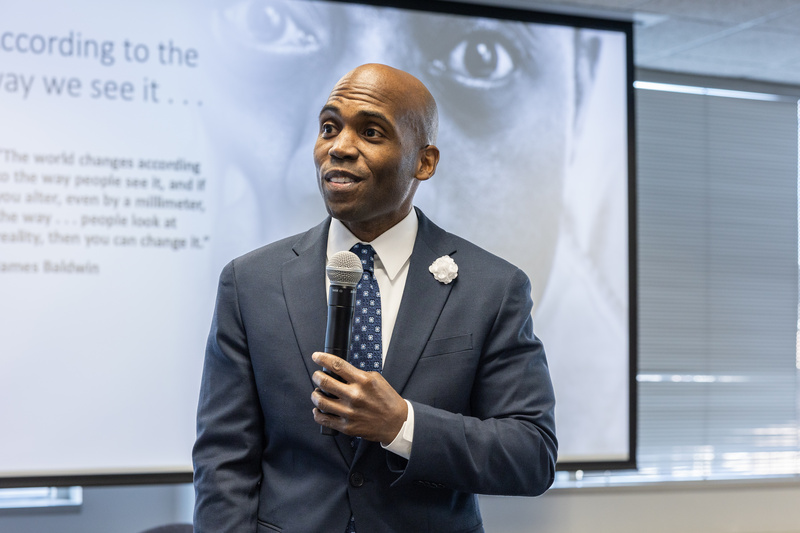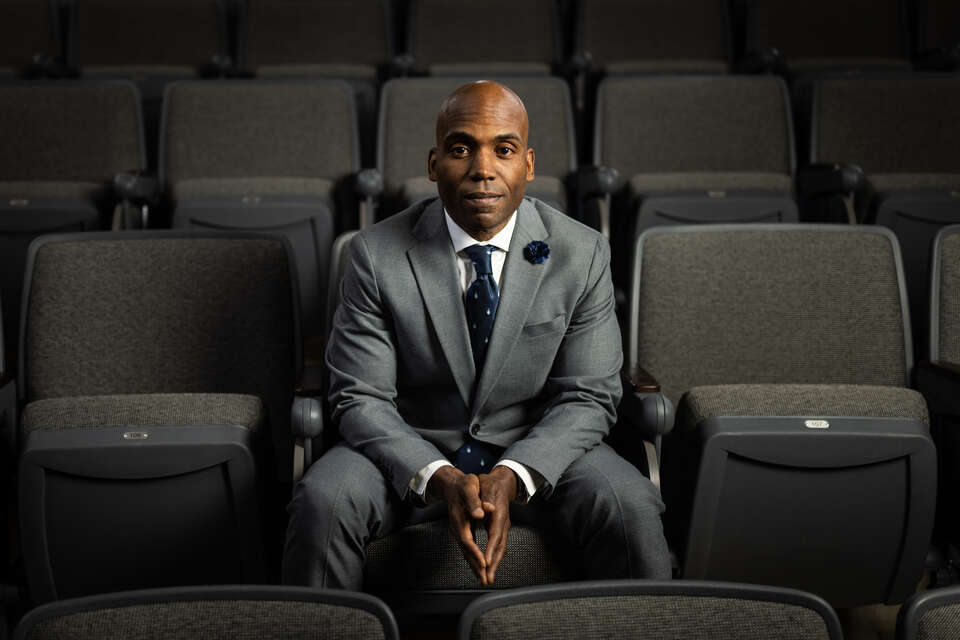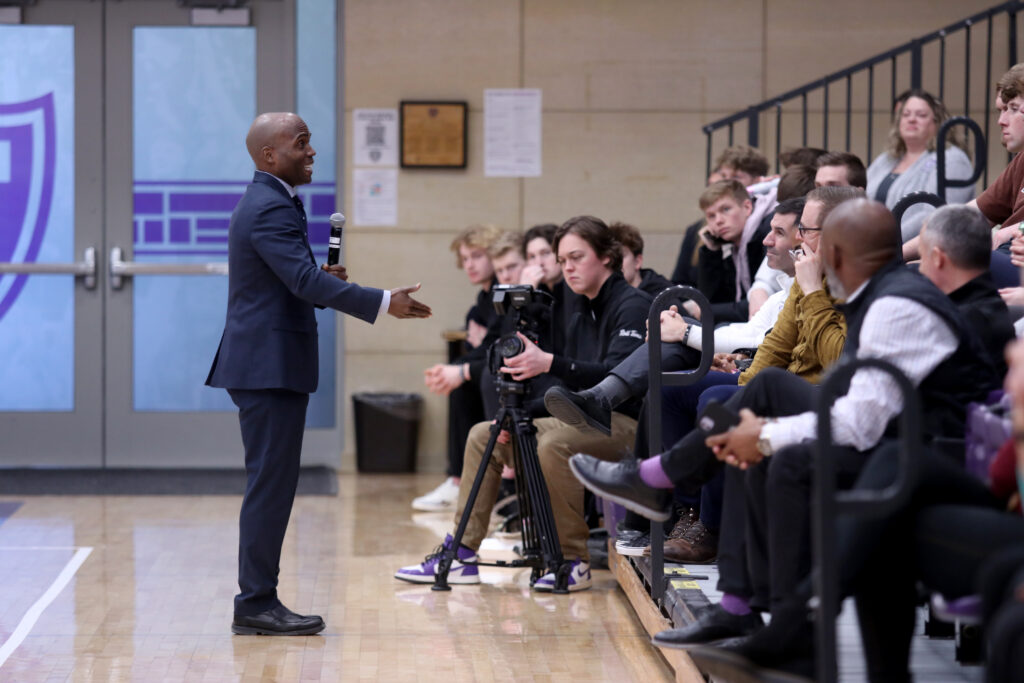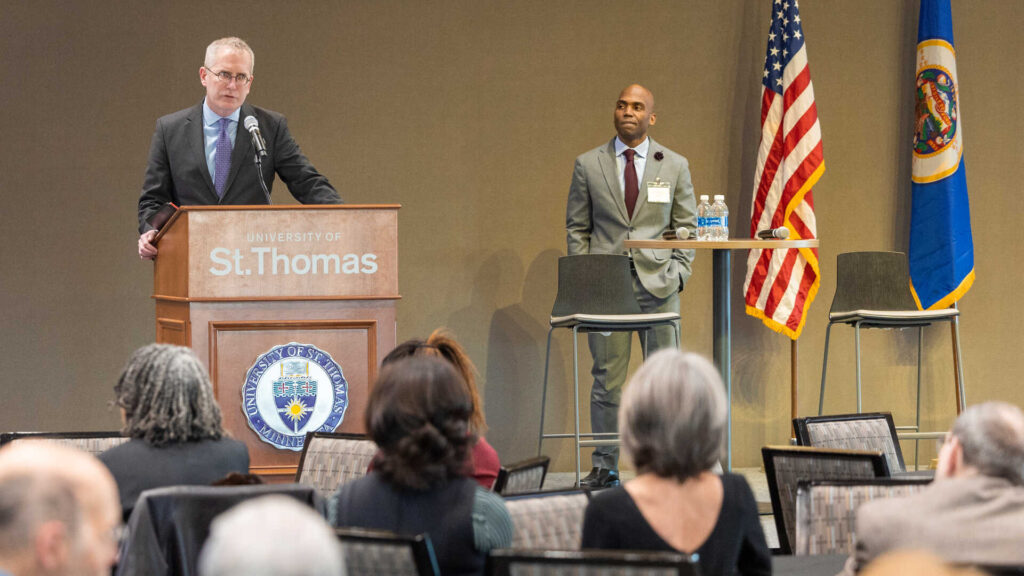A conversation with Dr. Yohuru Williams, distinguished professor of history and founding director of the Racial Justice Initiative at the University of St. Thomas in Minnesota, inspired reflection and action for those attending an on-campus event.
Williams, who weaved in themes from his new book, More Than A Dream: The Radical March on Washington for Jobs and Freedom, helped attendees understand the need for continued commitment to racial justice issues.
“History echoes because we have opportunities and moments to make real change,” Williams said. “But if we don’t make that change we’re left with the haunting reminder of the opportunities that were and the failure to invest deeply enough to achieve real, true, lasting change.”
Williams challenged the approximately 200 attendees comprising students, faculty, staff, board of advisers and community leaders, to take proactive steps toward a more equitable future. He underscored the need to move beyond mere training, advocating instead for genuine education as a means of understanding the complexities of historical struggles and contemporary challenges. He highlighted the significance of preventing history’s dark patterns from repeating and urged attendees to actively participate in the movement for racial equality.
Addressing crucial questions
Throughout the event held at the university’s Iversen Center for Faith, attendees posed important questions, reflecting the urgency of the ongoing discussion.
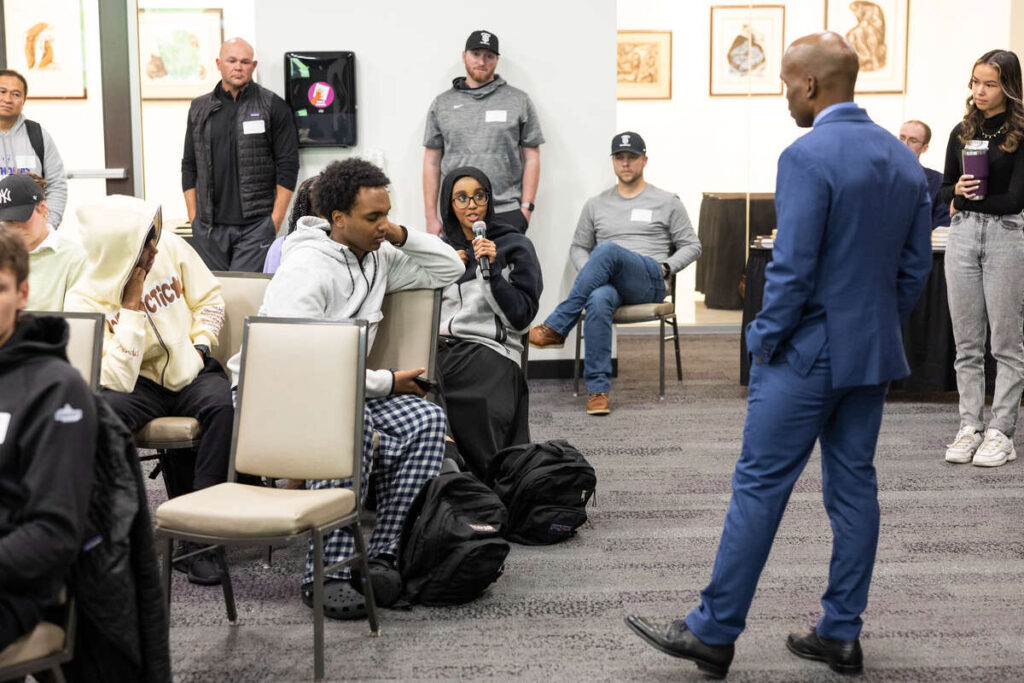
“Our mission, speaking specifically to the students now, is to educate students to be morally responsible, think critically, act wise, and work to advance the common good consistent with that mission,” Williams said. “When I think about the work that we’re doing in community, it’s important for me to emphasize that we are partners in community, not because we come to lead, but because we come to work in an area where we have expertise specialization. We need to continue to be able to do the work in community that will move the needle and remind people that this work isn’t new.”
Faculty member Dr. Chelda Smith, an associate professor at the School of Education, questioned the nuanced contributions to the cause, asking whether the responsibilities differed for people of color and non-people of color.
"I think it sits differently," Williams answered, "because of that historical trauma. People of color feel it much more acutely and understand it much more intimately." Williams answered, in part, by paraphrasing a 1958 quote from Thurgood Marshall pondering the future of American democracy in light of massive resistance to school integration. “'I don’t worry about Black children in the States that are trying to move,'” Marshall observed. “'I worry about the white children who are told as young people that the way to get your rights is to defy the government. I don’t worry about the Black kids, he concluded, 'they have been struggling with democracy long enough.'”
Intersectionality and student engagement
A first-year scholar in the Dougherty Family College, Suweyda Bashir, asked Williams how individuals, especially Black students from urban areas like Minneapolis, could ensure that history does not repeat its troubling echoes. This question ignited a conversation about the role of younger generations in shaping a more enlightened future.
“Just by being in this space and getting this education is going to empower you to be in a position to help to center that conversation in ways that you can’t run from that history,” Williams said. He added, however “that by default, if you care about social justice, you get drafted into the movement. You don’t have a choice.”
President of the Black Empowerment Student Alliance and student in the nursing school, Celeste Conteh, probed the topic of intersectionality, questioning how it could be interwoven into engagement strategies, prompting individuals to come forward. This inquiry led to discussions about the importance of recognizing diverse identities within the fight for justice and equality.
Beacon of hope
Amid these thought-provoking questions and discussions, the Racial Justice Initiative emerged as a beacon of hope, emphasizing the shared nature of the struggle for racial equality. Participants left the event invigorated, with knowledge, and inspired to actively contribute to dismantling systemic inequalities.
Quoting author James Baldwin, Williams aptly shared that “the world changes according to how people see it,” a sentiment underscoring the power of perception and understanding in driving societal change.
The call to action has been sounded, and it resonates with everyone, regardless of their background. Williams hopes that everyone will be united in purpose as they move forward, challenging history’s echoes and ensuring a more just tomorrow for all.
